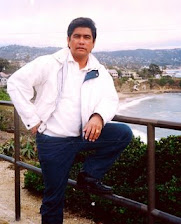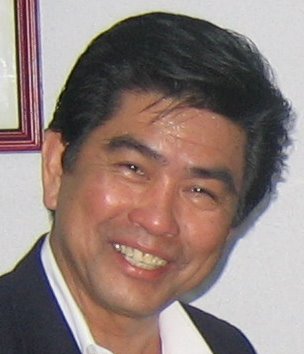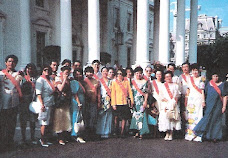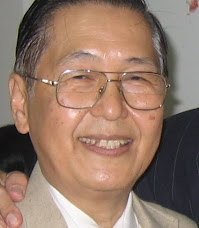
Leaders of 351 Media Movement, Preparing The Filipino Youth, in the Philippines. L-R: Delfin Diezmo, Ruby Tan, Manny Lumba, Ian Barcelona, Zonny Lerum, Jr., Joey Lina, Butch Belgica, Jojo Gonzales, Lloyd Luna, Pocholo Gonzales

The 351 Media Movement logo and emblem
NEW JERSEY, USA—Without doubt, the youth is the hope of tomorrow. But it is the older generation that is the hope of the youth. The 351 Media Movement will call for the older generation here in the United States and other parts of the world to rally behind the youth. Our target is the youth in the Philippines, because we want to change the Philippines from a nation of poverty to a nation of prosperity like Japan. We also want to change the present array of politicians with the youth who are yet in universities and colleges and high schools that we are going to pick and select from and then train and mentor. We will hold youth conferences, fora and group discussions and from there we will select the most promising youth, to make them speakers and leaders and send them out to business places, government places, and church places, to speak and motivate all people in all walks of life. In other words, Preparing The Filipino Youth Program, from the Resolution 351 Media Movement will take care of these chosen youth and mentor them to see to it that they carry the true ideals of leadership and how to be able to govern properly. Without training people fail. Without training the youth will also fail.
The good news is, now, Resolution 351 Media Movement, through the founding president, Dr. John A. Ayudtud, and the founding Chairman, Architect Zonny Lerum, will campaign for helps in the United States and Canada, and other parts of the world to support the many youth movements that are already in place in the Philippines. We have three youth leaders in mind that we are going to be rearing up with financial backing and they are: Lloyd Luna, Ian Barcelona, and Pocholo Gonzales. Their names are frequently used now here in the United States as the three top ranking youth leaders in the Philippines. We are raising up members here for the movement, and we believe that we will be able to raise millions of dollars for our youth projects in the Philippines; aimed at raising potential leaders in the future.
We will also raise up youth here in the United States who will become speakers to youth conferences in the Philippines, and likewise, we will try to bring youth from the Philippines to speak to youth conferences here in the United States. Everyone that we talk to about Preparing The Filipino Youth Program exclaims with excitement. I spoke to a doctor friend in Florida and he gets so excited to join in.
The good news is, now, Resolution 351 Media Movement, through the founding president, Dr. John A. Ayudtud, and the founding Chairman, Architect Zonny Lerum, will campaign for helps in the United States and Canada, and other parts of the world to support the many youth movements that are already in place in the Philippines. We have three youth leaders in mind that we are going to be rearing up with financial backing and they are: Lloyd Luna, Ian Barcelona, and Pocholo Gonzales. Their names are frequently used now here in the United States as the three top ranking youth leaders in the Philippines. We are raising up members here for the movement, and we believe that we will be able to raise millions of dollars for our youth projects in the Philippines; aimed at raising potential leaders in the future.
We will also raise up youth here in the United States who will become speakers to youth conferences in the Philippines, and likewise, we will try to bring youth from the Philippines to speak to youth conferences here in the United States. Everyone that we talk to about Preparing The Filipino Youth Program exclaims with excitement. I spoke to a doctor friend in Florida and he gets so excited to join in.
We want to encourage all youth groups in governments, in churches, in the schools, and in businesses to get into our website and apply for recognition. We need as many youth organizations that we can tap. One day, we will get the Araneta Coliseum to have our youth conference. And we will get speakers from the United States and Canada, young people, who are also Filipinos, and who are challenged and poised to change the Philippines in a big way.
















